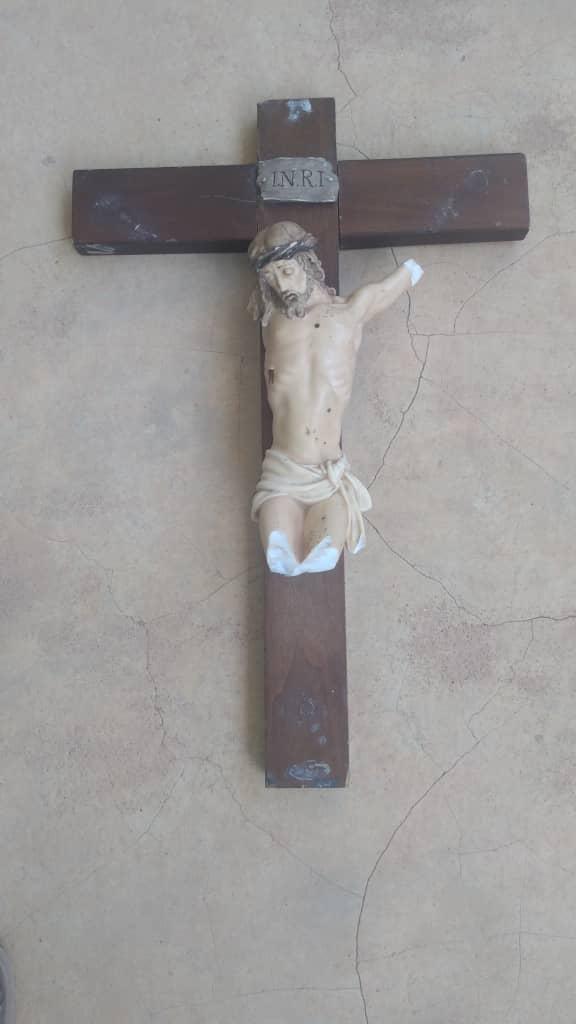ROSARIO, Argentina — According to the papally-sponsored humanitarian agency Aid to the Church in Need, a minor seminary in eastern Burkina Faso was attacked on the night of Feb. 10-11 by unidentified armed jihadists.
“Aid to the Church in Need (ACN) has received the sad news that the minor seminary Saint Kisito de Bougui, in the diocese of Fada N’Gourma, East Burkina Faso, located about ten kilometers from Fada N’Gourma, was attacked,” says a statement released by the organization.
“Though there were no losses in human life, there was a lot of material damage,” ACN reported.
From sources on the ground, the international charity was able to confirm that some 30 jihadists on motorcycles violently entered the seminary around 8:00 p.m. They remained for over an hour, during which time they burned

down two dormitories as well as a classroom. They also burned one car and stole a second one.
A crucifix was also destroyed, in what seminary residents took as a clear sign of the radical Islamist motives for the attack.
“They told the seminarians that they should go now, because they will come back and, if some remain, they will be killed,” said the statement released Feb. 11 by ACN. At the time of the attack, there were 146 minor seminarians, along with seven formators.
The seminarians were sent back to their family homes, where they are expected to remain for at least a week. Many of those living in the village where the seminary is located are “very afraid and some of them are leaving,” informed ACN.
“Burkina Faso has been living through this silent torment for years now. It is a slow agony that has prompted an exodus of over 1.3 million internal refugees,” said Maria Lozano, the press responsible for ACN.
The situation in this African country of 21 million, located in western Africa near Ivory Coast and Mali, has been deteriorating for several years. In January, a military coup overthrew the democratically elected former President Roch March Christian Kaboe. The leader of the new junta, Lt. Col. Paul Henri Sandaogo Damiba, was declared president this week.
Damiba is to be officially inaugurated on Feb. 16, military officials confirmed Friday, although his term as president is effective retroactively from Jan. 24, when soldiers overthrew the democratically elected Kaboe.
On Wednesday, the United Nations Security Council expressed “serious concern” over Burkina Faso’s “unconstitutional change of government” but chose not to describe it as a military coup or condemn it outright.
Damiba has vowed to restore security to the conflict-riddled nation, and to restore constitutional rule when the “conditions are right.” The country has seen a dramatic increase in attacks by jihadists linked to al-Qaida and the Islamic State group, with some 2,000 people believed to have been killed since 2018 in clashes between the Islamists and the Burkina Faso military and allied paramilitary groups.
Islamist groups are now said to move freely across the country, and in some regions they’ve succeeded in subjecting local populations to a strict interpretation of Islamic shariah law.
The junta has so far received widespread support from people across Burkina Faso for its pledges to crack down on the violence, but the international community largely has condemned the coup.
“Once an oasis of stability and internal peace, since 2015 the country has been drifting ever further into chaos,” explained Lozano. “Jihadists and criminal gangs are inflicting violence upon large parts of the predominantly Muslim country.”
The motives are manifold, she told Crux. In the multi-ethnic state, rancor arising from the neglect of entire regions by the governments has come together with ethnic rivalries and Islamic fanaticism. Jihadists would like to establish a new caliphate. Criminals are taking advantage of the chaos to serve their own purposes. The drug and arms trade is flourishing.
“More than one million people have become refugees in their own country – bleak prospects for the people living in one of the poorest countries in the world,” Lozano explained. “Christians, who make up about thirty per cent of the population, are also targeted by terrorism. Tens of thousands have fled from the regions that are under attack by terrorists. Many have sought refuge in the diocese of Kaya and in the capital Ouagadougou.”
The Spaniard was in Burkina Faso in 2020 together with some colleagues of ACN, right before the COVID-19 pandemic heavily restricted international travel.
“As we were told at the time, it is not only the deadly attacks, but above all the situation of the internal refugees, estimated to be over one million, that presents an enormous challenge,” she said. “Whereas some of the refugees have been able to find shelter with relatives in the south of the country, others have been living for months in makeshift camps.”
Among those forced to flee are many Church personnel. In the diocese of Dori, for instance, 15 catechists and their families had to flee after receiving death threats.
ACN project partners on the ground, she said, have reported that terrorists are again sneaking into villages where they then threaten people and order them not to go to church or to pray publicly. As a result, there is constantly growing fear in these areas.
In many parishes throughout the country, Lozano said, church activities have either been canceled or heavily restricted, with the timing of the Mass and other activities changing occasionally to try to prevent terrorist attacks such as the one Thursday night.
Follow Inés San Martín on Twitter: @inesanma












